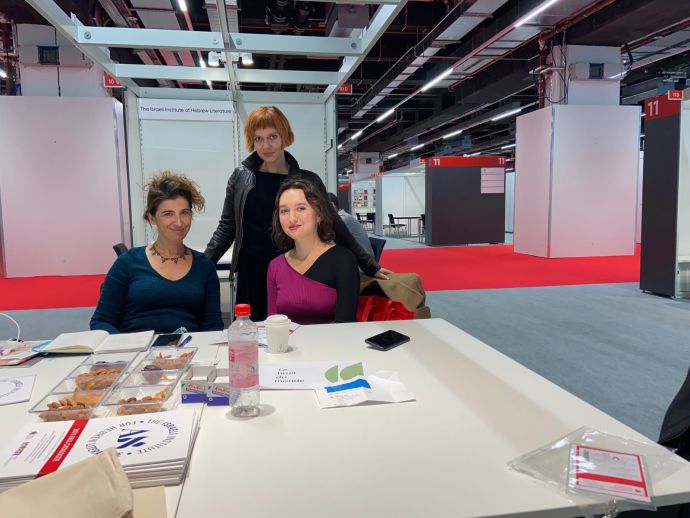Literature is one of Israel’s strongest cultural ambassadors. For this reason, the Ministry of Foreign Affairs closely cooperates with the Israeli Institute for Hebrew Literature to promote Israeli authors across the globe.
“Every book is a letter in a bottle, but an ocean separates it from the spectacular shores of reading,” says Oded Wolkstein, the Institute’s Chief Editor. “We tend to forget this ocean, yet it's always there. The Israeli Institute of Hebrew Literature is the ambassador of Israeli creative fiction; time after time it crosses this ocean, for each and every book. The Institute promotes Israeli books around the world, and collaborates with publishing houses, cultural institutes, literary events, and international fairs.”

When it comes to publishing a foreign book, translation is a key element, both because the quality of the translation is essential for the success of the work, and because translation often represents the highest cost of the publishing operation.
“The Cultural Diplomacy Division and representatives of the Israeli Ministry of Foreign Affairs worldwide suggest that the institute shares the translation expenses,” Wolkstein explains. “It may be assumed that without this, a major part of the Israeli books would never have been published internationally.”
A project in cooperation between the Israeli embassy in New Delhi and a local association, encouraging reading among children in rural regions recently translated several Hebrew children's books into Hindu, including Edna Mazya's "Again, Granny, Again!" and Eshkol Nevo's "Amalia's Father Goes to Australia". In the Czech Republic, the Embassy in Prague facilitated the cooperation between the Institute and some local publishers in order to distribute grants for Hebrew books to be translated into Czech.
“If literature is a city, then the international fairs are the city squares, where various creative houses convene to exhibit their spiritual produce,” adds Wolkstein. “With the encouragement of the Ministry of Foreign Affairs, as well as various representatives, the Institute widely exposes Israeli literature at major international fairs.”
In the coming year, the Institute is working to prepare for the fairs in Gutenberg, Sweden, in Santo Domingo, Dominican Republic and for the Biennale in Rio De Janeiro, Brazil, in September 2023, where Israel was selected as the guest of honor.
The editor explains that the institute also cooperates with cultural attachés from delegations and embassies all over the world for various projects. For example, in the past year, they worked with the Israeli embassy in Tokyo to promote Hebrew literature in Japan by narrating Israeli short stories translated into Japanese on the biggest radio station in the country.
“In the coming year, the Institute will invite prominent translators, who have translated hundreds of books by selected Israeli authors throughout the years,” Wolkstein concludes. “They will come for a period of residency and will also mentor young translators. This unique project is designed to encourage a real process of intergenerational mentoring among translators of Hebrew literature, enable the formation of a community, and train a new generation of translators.”

